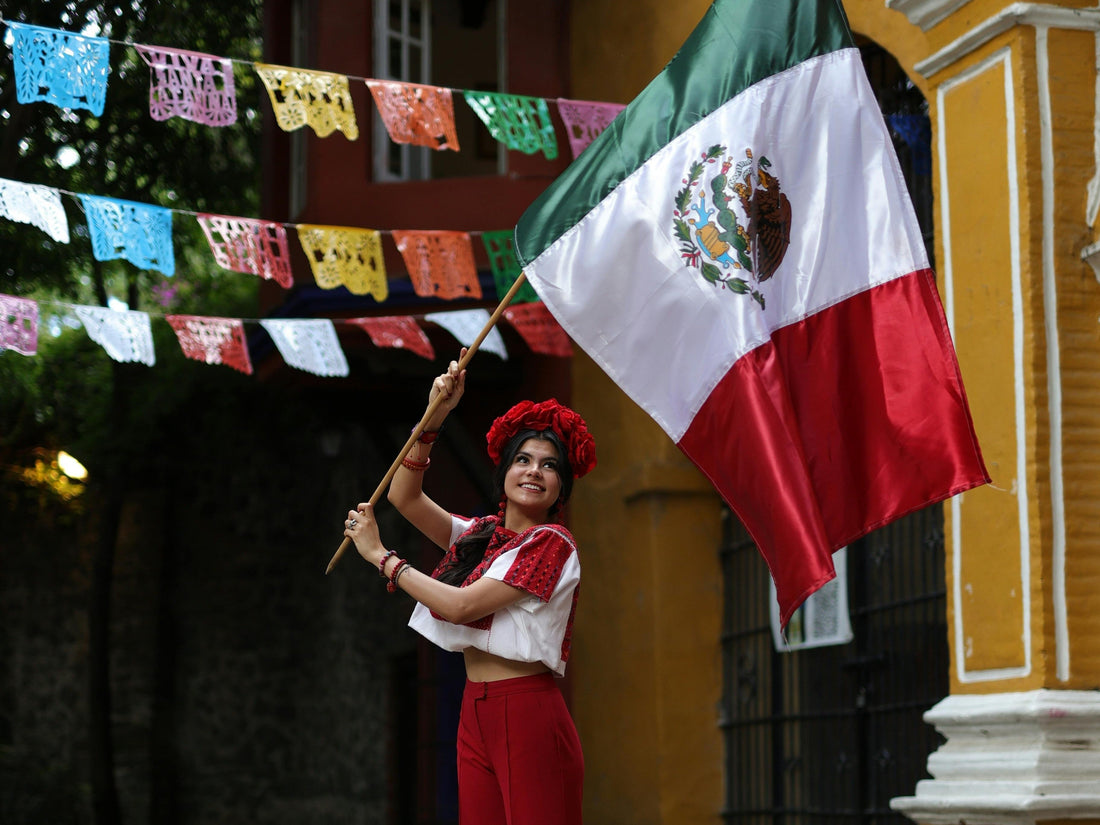
25 Mexican Spanish Idioms That Reveal Local Wisdom
Share
Understanding Mexican Spanish Idioms
Mexican Spanish is full of colorful expressions that reflect the country’s culture, humor, and way of life. Idioms—known as modismos or frases hechas—are essential to mastering the language beyond grammar and vocabulary. These expressions capture the essence of everyday life, blending history, folklore, and local traditions.
Learning these idioms not only improves comprehension but also helps you sound more natural in conversations. Whether you're a language enthusiast or planning a trip to Mexico, understanding these phrases will enrich your experience.
For those who want to dive deeper into authentic Mexican Spanish, Short Stories in Mexican Spanish offers an engaging way to learn through storytelling and practical vocabulary.

Why Idioms Matter in Language and Culture
Idioms reflect the wisdom and values of a culture. Many Mexican sayings are rooted in rural traditions, Catholic beliefs, or historical events. Others showcase humor and resilience in everyday struggles. By learning these phrases, you gain insight into Mexican thought patterns and ways of expressing emotions.
Below are 25 popular Mexican Spanish idioms, their meanings, and examples of how they’re used.
25 Mexican Spanish Idioms and Their Meanings
1. Más vale tarde que nunca
(Better late than never.)
This phrase encourages persistence and patience. It’s used when someone finally completes a task or arrives somewhere late but at least makes the effort.
Example:
— Por fin entregaste tu trabajo. Pensé que no lo harías.
— Sí, me tomó tiempo, pero más vale tarde que nunca.
2. El que madruga, Dios lo ayuda
(God helps those who wake up early.)
A call to action, this saying emphasizes the importance of diligence and starting early to achieve success. It’s often used to encourage hard work and responsibility.
Example:
— Mañana me levantaré a las 5 a.m. para estudiar.
— Muy bien, recuerda que el que madruga, Dios lo ayuda.
3. No tener pelos en la lengua
(Not having hairs on one’s tongue.)
This idiom means speaking frankly without holding back opinions. It can be positive (honesty) or negative (bluntness).
Example:
— ¿Qué opinas de mi nuevo look?
— No tengo pelos en la lengua… no me gusta mucho.
4. Salir con su domingo siete
(To come out with their Sunday seven.)
This expression refers to getting into trouble, often related to an unexpected or embarrassing situation. In some cases, it implies a woman getting pregnant out of wedlock.
Example:
— María salió con su domingo siete. Ahora tiene que enfrentar las consecuencias.
5. Echarle ganas
(To put effort into something.)
One of the most common motivational phrases in Mexico, it means to try hard and give your best.
Example:
— Estoy cansado, pero quiero terminar el proyecto.
— Ánimo, échale ganas y lo lograrás.
6. A ojo de buen cubero
(By the good cooper’s eye.)
This phrase means estimating something without precise measurements, relying on experience or intuition.
Example:
— ¿Cuánta agua debo echarle a la sopa?
— A ojo de buen cubero, con un litro es suficiente.
7. Matar dos pájaros de un tiro
(To kill two birds with one stone.)
Used when accomplishing two goals with one action.
Example:
— Aproveché el viaje a la ciudad y también hice compras.
— ¡Muy bien! Mataste dos pájaros de un tiro.
8. Hacer de tripas corazón
(To make heart out of guts.)
This means to face a difficult situation with courage, despite fear or discomfort.
Example:
— Tengo que hablar en público, pero me da mucho miedo.
— Haz de tripas corazón y hazlo con confianza.
9. Ahogarse en un vaso de agua
(To drown in a glass of water.)
Used for someone who panics or exaggerates small problems.
Example:
— No puedo creer que perdí mi bolígrafo favorito.
— No te ahogues en un vaso de agua, puedes comprar otro.
10. Tirar la toalla
(To throw in the towel.)
Adapted from boxing, it means to give up or surrender.
Example:
— Este examen está muy difícil, ya no quiero estudiar.
— No tires la toalla, todavía tienes tiempo para prepararte.

11. No todo lo que brilla es oro
(Not everything that shines is gold.)
A warning that appearances can be deceiving.
Example:
— Ese negocio parece muy bueno, pero no sé si es confiable.
— Ten cuidado, no todo lo que brilla es oro.
12. Como agua para chocolate
(Like water for chocolate.)
This phrase means being extremely angry or passionate about something. It comes from the traditional process of preparing hot chocolate in Mexico.
Example:
— Cuando supo que le mintieron, estaba como agua para chocolate.
13. Estar en la luna
(To be on the moon.)
Refers to someone being distracted or lost in thought.
Example:
— Juan, ¿estás escuchando?
— Perdón, estaba en la luna.
14. Se le fue el avión
(The plane left him.)
Means someone forgot something or got distracted.
Example:
— Iba a decirte algo importante, pero se me fue el avión.
15. Ser uña y mugre
(To be nail and dirt.)
Describes two people who are inseparable friends.
Example:
— Luis y Pedro siempre están juntos.
— Sí, son uña y mugre.
16. Cría cuervos y te sacarán los ojos
(Raise crows, and they will peck your eyes out.)
This phrase warns about betrayal, especially when someone you have helped turns against you. It is often used when someone is ungrateful or when children disrespect their parents.
Example:
— Después de todo lo que hice por él, me traicionó.
— Cría cuervos y te sacarán los ojos.
17. Camarón que se duerme, se lo lleva la corriente
(A shrimp that falls asleep gets carried away by the current.)
This saying emphasizes the importance of staying alert and proactive. If you don’t take action, opportunities (or dangers) will sweep you away.
Example:
— No estudié para el examen y lo reprobé.
— Camarón que se duerme, se lo lleva la corriente.
18. Estar hasta la madre
(To be up to the mother.)
A very informal way to say that someone is fed up or extremely annoyed with something.
Example:
— Estoy hasta la madre del tráfico en esta ciudad.
— Te entiendo, es desesperante.
19. Ponerse las pilas
(To put in the batteries.)
This phrase means to get serious, focus, or put in more effort into something.
Example:
— Si no te pones las pilas, no vas a pasar el curso.
— Tienes razón, necesito estudiar más.
20. El que con lobos anda, a aullar se enseña
(He who walks with wolves learns to howl.)
This idiom means that the people you surround yourself with will influence your behavior, for better or worse.
Example:
— Desde que empezó a salir con esos amigos, ha cambiado mucho.
— El que con lobos anda, a aullar se enseña.
21. Más vale malo por conocido que bueno por conocer
(Better the bad you know than the good you don’t.)
A cautious saying that suggests sticking to familiar things instead of risking the unknown.
Example:
— No me gusta mi trabajo, pero no sé si encontraré algo mejor.
— Bueno, más vale malo por conocido que bueno por conocer.
22. Del dicho al hecho hay mucho trecho
(There is a long stretch from saying to doing.)
This idiom highlights the gap between words and actions. Just because someone promises something doesn’t mean they will follow through.
Example:
— Dijo que me ayudaría, pero no hizo nada.
— Del dicho al hecho hay mucho trecho.
23. Llamar al pan, pan y al vino, vino
(To call bread, bread, and wine, wine.)
This phrase means being direct and honest, without sugarcoating the truth.
Example:
— No voy a mentir, lo que hiciste estuvo mal.
— Mejor así, siempre hay que llamar al pan, pan y al vino, vino.
24. El que no tranza, no avanza
(He who doesn’t cheat, doesn’t progress.)
A controversial saying, often used to criticize corruption or dishonesty. It reflects a cynical view of success, implying that cutting corners is necessary to get ahead.
Example:
— ¿Cómo consiguió ese puesto tan rápido?
— Dicen que hizo algunos favores… ya sabes, el que no tranza, no avanza.
25. A darle que es mole de olla
(Let’s get to it, it’s mole de olla.)
This phrase is used to encourage people to take action, similar to saying “Let’s get to work.” Mole de olla is a traditional Mexican dish that requires effort to prepare, hence the motivation to get started.
Example:
— Tenemos que terminar este proyecto hoy.
— ¡Pues a darle que es mole de olla!
Bringing Mexican Spanish to Life
Mexican Spanish is rich in expressions that go beyond direct translation. Understanding these idioms will not only help you communicate more naturally but also provide insights into Mexican culture and humor.
If you’re eager to learn more Mexican Spanish in a fun and immersive way, Short Stories in Mexican Spanish is the perfect resource. Through engaging stories filled with authentic phrases and cultural references, you’ll enhance your vocabulary and gain confidence in speaking Spanish.
With these idioms in your toolkit, you’re one step closer to mastering real-life Mexican Spanish!

